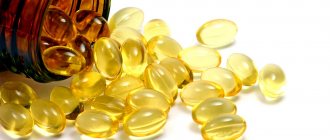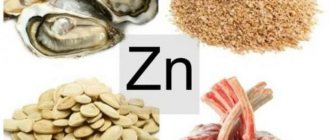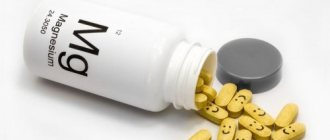Alpha interferon: indications and contraindications
This drug is used: 1. Parenterally for: - hepatitis B and C: - hairy cell leukemia; - genital warts; - multiple myeloma; — mycosis fungoides; - non-Hodgkin's lymphomas; - Kaposi's sarcoma in patients with AIDS; - renal carcinoma; - malignant melanoma. 2. Rectally for: - treatment of chronic and acute viral hepatitis. 3. Intranasally for: - treatment and prevention of acute respiratory viral infections; - treatment and prevention of influenza.
The drug is contraindicated in the following cases:
- severe heart disease; — epilepsy and disorders of the central nervous system; — various dysfunctions of the kidneys and liver; — chronic hepatitis and liver cirrhosis; — autoimmune hepatitis; — autoimmune thyroiditis and thyroid diseases; - treatment with immunosuppressants.
Help your immune system. Why does the body need interferon after vaccination?
During the period of vaccination against COVID-19, many people have different questions: “How will my body tolerate the vaccine? Is there a risk of getting ARVI? How to protect yourself from coronavirus between doses of the two components of the vaccine? We talked about drugs that help not only fight the virus, but also strengthen the immune system, with Alexander Karaulov, Doctor of Medical Sciences, Academician of the Russian Academy of Sciences, Head of the Department of Clinical Immunology and Allergology, Head of the Laboratory of Immunopathology of the First Moscow State Medical University. I. M. Sechenov.”
— Alexander Viktorovich, how does the body react to the introduction of the vaccine?
- In fact, with the help of a vaccine, we train our immune system for a future meeting with the pathogen. Scientists emphasize that approximately 3% of the population suffers from COVID-19 severely, and 0.3% may have a life-threatening course of the disease. Moreover, if earlier we saw that severe cases were more common among the elderly and patients with concomitant diseases, now the majority of life-threatening conditions occur in patients aged 40 to 60 years. Only 50% of those who have had COVID-19 have developed antibodies.
Vaccination protects against infection, and if it does occur, the infection is mild. However, post-vaccination immunity is formed differently in different groups of people. Its formation can be slowed down in older people or patients with weak immunity, that is, in those whose body’s defenses are weakened by past or concomitant infections, chronic diseases, stress, malnutrition, environmental conditions, etc.
— Nowadays there is a lot of talk about interferons, that they strengthen the immune system. Many studies have already been published on the use of drugs of this group for COVID-19; in Russia they have become part of the standards of medical care. How do interferons work during vaccination?
— Interferons in our body perform a regulatory function. To put it figuratively, interferon is a traffic controller at a crossroads: it directs the immune response in the right direction, thus promoting recovery. This property of interferon is also excellent for preparing for vaccination, which, in essence, is also the body’s immune reaction, but not for the purpose of recovery, but for the purpose of more effectively producing antibodies against the causative agent of the disease.
— How exactly does interferon affect the level of antibody production?
— Interferons promote the activation of the immune system, enhance the production and maturation of cells that trigger the formation of a high-quality immune response. Interferon-based drugs can be used before vaccination, several hours later, or the next day after the vaccine is administered. You just need to understand that they do not act instantly: this is a process that will take some time. Taking into account the accumulated clinical experience, I would recommend, for example, a rectal form of interferon for five days before vaccination or five days after. This can enhance the formation of an immune response and prevent the patient from contracting other diseases while an adequate level of antibodies to the vaccine has not yet been developed.
— Is it possible to get sick with ARVI or the same “corona” during vaccination?
— You can get sick because at this moment all the energy of the body is directed, as I said earlier, to the production of antibodies: immunity is not formed from the first day, this has already been voiced many times. Of course, there is a risk of getting another or the same infection for which you are vaccinated if antibodies have not yet developed. To prevent this from happening, prevention is needed. Unfortunately, people are so tired of the pandemic that, after getting their first vaccination, they often stop even wearing masks. But it is important to understand that any disease during the vaccination period is a double burden on the body. Therefore, you need to behave very responsibly during this period.
— In what cases, in addition to vaccination, can interferon drugs be used during the COVID-19 epidemic?
— First of all, as a preventative measure, use gel or ointment with interferon, which are applied to the nasal mucosa. In fact, this is a universal means of preventing ARVI, the effectiveness of which was proven even before the coronavirus pandemic, during the annual flu epidemics. Gel bases have a prolonged (long-lasting) preventive effect and are convenient to apply.
— Is it possible to treat COVID-19 with interferon drugs?
— As for treatment, I cannot help but draw attention to the importance of using the rectal form of interferon: suppositories. In this case, the body, weakened by the disease, receives the missing interferon necessary for an adequate response to the infection, additionally in the drug. Suppositories have a systemic effect on the body as a whole, that is, interferon administered rectally can penetrate all organs and tissues affected by the virus. Today we are faced with a huge number of neurodegenerative complications of COVID-19. The virus easily penetrates the organs of the central nervous system, sometimes causing irreversible changes in them. Thanks to rectal administration, interferon, using the lymphatic pathways, is able to penetrate into the cerebrospinal fluid, preventing the development of dangerous complications. It is also quickly delivered to the lungs - it is not without reason that it has been used for many years in the treatment of pneumonia.
Research on the use of interferon for coronavirus is actively underway in the West and in Russia. We receive new data almost monthly. For example, our colleagues from Omsk Medical University conducted a study involving 140 patients with COVID-19. 70 of them received standard therapy, and another 70 combined it with VIFERON rectal suppositories and gel, both of which were used regularly for 14 days. According to the results of the study, the symptoms of intoxication in such patients - headache, muscle pain, weakness - stopped 2-8 days earlier. The cough disappeared by the 5th day from the start of treatment, a runny nose was recorded only for 3 days, patients stopped noticing disturbances in taste and smell by the fourth day from the start of treatment, shortness of breath stopped by the third day. In patients who did not receive additional interferon, all symptoms of the disease lasted statistically longer.
I note that in the initial stages of the disease the rule “the sooner, the better” really works. Early initiation of interferon therapy reduces the mortality rate and demonstrates better treatment results. This was confirmed by studies of our Chinese colleagues, who showed that if the initial level of interferon alpha increases, for example, due to therapy, then, as a rule, we will have a favorable outcome of the disease.
Link to publication: sigma-z.ru
Side effects of alpha interferon
The most severe side effects are observed with parenteral administration of the drug. These are: headaches, fever, weakness, myalgia. Side effects from the cardiovascular system: arrhythmia, arterial hypertension. From the central nervous system: impaired consciousness, drowsiness, ataxia. From the digestive system: nausea and vomiting, loss of appetite, diarrhea, possible impairment of liver function. Various dermatological reactions are possible: skin tightness, skin rash, erythema. All this, as a rule, manifests itself against the background of general weakness.
Contraindications and side effects
Interferon, the instructions for use of the drugs indicate this, is contraindicated for the treatment of patients with hypersensitivity to the main active substance or other components in the drug formulations.
Since interferon has a pronounced effect on various organs and systems, the following contraindications are distinguished:
- Severe mental disorders
- Hematological disorders.
- Disorders of the liver and kidneys.
- Disorders of carbohydrate metabolism
It is not recommended to use interferon for treatment during pregnancy and lactation. Only a doctor can prescribe it for certain indications.
Interferon, the instructions for use emphasize this, can cause negative reactions in the body. Most often they are provoked by injections. Side effects when using the drugs include nausea, chills, and anorexia. Drowsiness and a feeling of dry mouth are less common. In severe cases, there is a general deterioration of the condition against the background of many different disorders.
Alpha interferon: instructions for use
This drug is used as a solution for inhalation or instillation into the nose. Before use, the ampoule is shaken and opened. Then add water to it up to the mark on the ampoule (2 ml.). Then the whole thing is gently shaken until the dry powder is completely dissolved. For treatment, the drug begins to be used at the first symptoms of the disease. Interferon is instilled into each nasal passage, 5 drops at least 5 times a day, every 1-2 hours. The course of treatment should be 2-3 days. For preventive purposes, it is recommended to instill the solution 5 drops into each nostril twice with a 6-hour interval. The drug is also recommended for use as eye drops for viral infections. Interferon can be used for children in the same proportions. But there are other recommendations. A particularly effective method of using Interferon for children is inhalation. To do this, you need to dilute 3 ampoules of the drug in 10 milliliters of warm water. The inhalation procedure should be carried out no more than twice a day. We recommend using an electrically heated inhaler. Inhalation of the drug can be carried out to a child, both through the mouth and through the nose. It is not recommended to use Interferon for pregnant women and during breastfeeding (lactation). The drug should also be used very carefully in patients who have had a myocardial infarction, myelodepression, or thrombocytopenia. It is necessary to use Interferon with great caution together with sedatives, sleeping pills and opioid analgesics.
Interferon therapy: yesterday, today and tomorrow
To conduct the first studies of IFN, a group of volunteers was recruited who agreed to inject themselves with IFN obtained from the blood of monkeys. In those days when IFNs were little studied, making such a decision required a certain amount of courage. Therefore, we can say that people agreed to sacrifice themselves for the sake of science. Before the introduction of IFN, they were infected with the Coxsackie virus, which causes the common cold.
After a certain period of time, it was found that only one person from the group of volunteers became ill, despite the fact that the virus was present in all of them in the nasal washes. However, no side effects were found. This study marked the beginning of thousands of subsequent experiments, thanks to which scientists recognized the ability of IFN to protect humans from disease.
At the same time, in the 1960s, Soviet virologists also joined the study of the effect of IFN on the human body. Epidemiologist Soloviev V.D. proposed to produce IFN from placental blood taken from postpartum women. In 1969, an epidemic of Hong Kong influenza was recorded in the USSR, which was first tried to be combated with the help of interferon preparations obtained from human blood. It was found that the effectiveness of such drugs is almost 70%.
IFNs were also widely used in subsequent years - for example, in 1973, when Academician A.A. Smorodintsev began researching this type of protein. In scientific works of those years, the most effective methods of using IFN were analyzed. Thus, through the ongoing study of IFN and its effect on the human immune system, by the end of the 20th century, scientists were able to accumulate enormous experience in the use of human leukocyte IFN for the prevention and treatment of respiratory infections, including influenza, as well as some other viral diseases.
Intranasal interferon preparations have been widely used in many countries around the world, including the UK, USA, Japan and Bulgaria. In recent years, interferon has begun to be widely used in the treatment of children. For adults, this group of drugs has been used for more than half a century. With the beginning of the use of IFN, the effectiveness of protection against ARVI in preschool children, including newborns, has increased significantly. This indicated to scientists that it is necessary to study IFNs more and more deeply and strive to expand the scope of their influence, to try to fight a variety of diseases with the help of IFNs.
However, unfortunately, after the start of mass production of IFN, it quickly became clear that the composition of drugs containing interferon is inconsistent even within the production of one pharmaceutical company. The main disadvantages of drugs obtained from donor blood include the inability to purify the drug at a high level. It turned out to be difficult to remove viral particles from the drug. In addition, donated blood is a very expensive ingredient, available in large quantities only to a few pharmaceutical companies. Therefore, the company has now almost abandoned the production of leukocyte IFN. A small volume of IFN preparations obtained from donor blood is used strictly for life-saving indications, when the expected benefit significantly outweighs the possible risks.
But did scientists really abandon the production of drugs with interferons after learning about the peculiarities of leukocyte IFN? Of course not. In this case, biotechnology came to the rescue - the science of ways to create various substances using natural biological components. Thanks to it, today pharmacists produce recombinant IFNs, absolutely identical to natural ones in amino acid composition, which do not require donor blood. These drugs are produced in large quantities throughout the world and are relatively low in cost, which in turn makes prices in pharmacies quite affordable for most consumers.
IFN preparations today can be produced in the form of dried lyophysiate, which is subsequently used to obtain a solution, suppositories for rectal and vaginal use, a solution for injections and inhalations, drops, ointments, gels, aerosols, tablets and microenemas.
IFN drugs may contain different amounts of the active substance. On drug packaging, this amount is most often indicated in international units, or IU.i
The release form and dosage of the IFN drug is selected by the attending physician, taking into account the patient’s age, condition and medical history.
Interferon: price and sale
Buying this drug today is not difficult. It is sold in almost every pharmacy or specialized department of any supermarket. Interferon, the price of which is not very high and is almost the same everywhere, is quite popular. But nevertheless, we want to warn you not to purchase this drug with your own hands and when purchasing it, require a certificate of product conformity. This way you will protect yourself from counterfeits that are now flooding pharmaceutical companies. Reviews about Interferon are generally favorable, it is noted to be highly effective in the treatment and prevention of infectious diseases, but at the same time, many reviews indicate that people are concerned about the side effects that occur when using this drug. One thing is clear: you need to know your body very well before using any medicinal drug.
What is interferon?
Interferons (IFNs) are a group of proteins that are released by cells in response to viral infection. In some cases, interferons begin to be released in response to infection by certain types of bacteria. Interferons were first discovered in 1957, when scientists Alik Isaacs and Jean Lindeman discovered that mice infected with one virus were not infected with other viruses. It was easy for scientists to conclude that in response to a viral infection, cells produce certain universal substances with antiviral activity2.
Currently, more than 20 interferons are known, which are divided into three types3,4:
- Type I – viral interferons. These include interferon alpha (IFN-α), interferon beta (IFN-β), and several other interferons. Interferons alpha and beta are produced in response to viruses, as well as bacterial components that stimulate not only the production of interferon, but also other immune mechanisms.
- Type II – immune interferon, including gamma interferon (IFN-γ). Unlike type 1 interferons, which are the first to respond to a viral infection, gamma interferon is produced at subsequent stages of infection.
- Type III – interferon lambda (IFN-λ). This type of interferon was recently discovered, and its mechanism of action resembles the first type of interferon.
Interferon and Transfer Factor
(very important note) The cost of a package of Interferon is from 80 to 120 rubles. A package is enough for 2-3 days of therapy, and in acute chronic diseases its use extends for years, and the result is not guaranteed and, on the contrary, it threatens very serious complications. A full course for this type of disease requires up to 30 packages (!), which requires a cost of about 3,500 rubles , long months of use and dealing with side effects. Exactly the same functions are performed by Transfer Factor, which contains 90 capsules in a package and costs about 2,000 rubles. , but at the same time its effect on our body is deeper and more dramatic - it puts in order damaged human DNA, i.e. removes the cause of the disease, and does not treat its consequences, like Interferon. Among other things, TF has no contraindications and does not cause any side effects; it is impossible to overdose and has no age restrictions. But if you still decide to take only Interferon, then we advise you to take it with TF in combination, because When taken this way, TF neutralizes all the side effects of Interferon. You will find everything about the use of TF here.
Types of interferons (types). Their effect on the body.
Scientists distinguish three types of interferons: interferons of the first, second and third types. The first type of IFN includes IFN-α, which in turn are divided into several subtypes. Type I IFN also includes IFN-β, IFN-ε, IFN-κ and IFN-ω. One type II IFN is also known – IFN-γ. At the beginning of the 21st century, a new class of interferons was discovered - the third type, represented by IFN-λ, which includes IFN-λ1, IFN-λ2 and IFN-λ3.
The IFN system, which includes interferons alpha, beta and gamma, is able to respond as quickly as possible to signals from the body indicating the penetration of infection and damage to DNA and RNA of cells. Virologists identify four main links in the functioning of the system of these proteins.
The first link is induction. The human body has an ideally tuned signaling system that detects the penetration of infection from the outside within about half an hour. The response of the cellular genome is immediately formed and the second stage begins - production, i.e. production of IFN.
The product consists of the synthesis of interferons by cells of the immune system and their secretion into the environment. Within a few hours after infection, the concentration of functionally active IFNs in the peripheral blood reaches its maximum. Thus, the body becomes fully prepared to fight infection if the immune system functions without failures. As a rule, this only happens in an ideal world, where a person has no problems with the environmental situation, and he always eats right and has no chronic diseases. Otherwise, IFN drugs may be required.
The third link is action. IFNs begin to protect the body's cells from the foreign influence of viruses and bacteria. And then, effects are connected as the fourth link. There are more than three hundred of them in total, among them are antiviral, immunomodulatory, antitoxic effects, as well as activation of natural killer cells, synthesis of prostaglandins and many other activities aimed at the fastest possible recovery.
Use of interferon drugs in medicine
Interferon drugs are actively used in the treatment of a wide range of viral diseases. In particular, we are talking about the human papillomavirus, viral hepatitis, herpes infection, as well as influenza and colds. An important factor in the selection of drugs containing interferon for the treatment of a particular disease will be the concentration of interferon in the drug, how it is obtained and what type of interferon (α, β, γ or λ) it contains. Despite the fact that there are interferon preparations that are available without a prescription, it is still better to consult a doctor in advance, since there are a number of contraindications for these drugs. Based on the method of preparation, interferon preparations can be divided into 4 types6,7:
- Leukocyte interferon is obtained from donor blood.
- Lymphoblastic interferon is obtained from a culture of lymphoblastic cells.
- Recombinant interferon is obtained from bacterial or fungal cultures into which the human gene responsible for the production of interferon has previously been inserted. Most often, interferon preparations contain recombinant interferon.
- Pegylated interferons are produced by combining recombinant interferon with polyethylene glycol. This is done to ensure that the drug lasts longer in the body.
Advantages and disadvantages of introduced interferons
The advantages of drugs containing interferons include their availability. An important advantage of interferons is their possible use against a wide range of viruses.
The relatively high level of safety of interferon drugs allows them to be used by children, who, as is known, often suffer from influenza and other acute respiratory viral infections.
However, along with the advantages, such drugs also have their disadvantages. Often, excessive amounts of type 1 interferon are associated with suppression of innate antibacterial immunity mechanisms8 and can also provoke a decrease in the production of intrinsic interferon9.







